In this roundup of court judgements, we look at the Supreme court’s directions relating to Mentally ill persons in institutions & hospitals, discharge of persons in a case relating to Delhi-riots and the directions by Madhya Pradesh high court regarding open-spaces.
Supreme Court: Directs States & UTs to take up vaccination of inmates of Mental Health institutions
On 01 September 2021, Supreme Court has issued multiple directions regarding the rehabilitation and vaccination of mentally ill persons who are lodged in various hospitals and mental health care institutions. The court was hearing a contempt petition in the case of Gaurav Kumar Bansal Vs. Dinesh Kumar & Ors.
In this regard, the Supreme Court directed all the States & Union territories to have a time-bound schedule to vaccinate all such mentally ill patients along with healthcare professionals & staff associated with these institutions within a month. The court further directed the States & UTs to file a progress report of the steps taken towards this effort, with the Ministry of Social Justice & Empowerment by 15 October 2021.
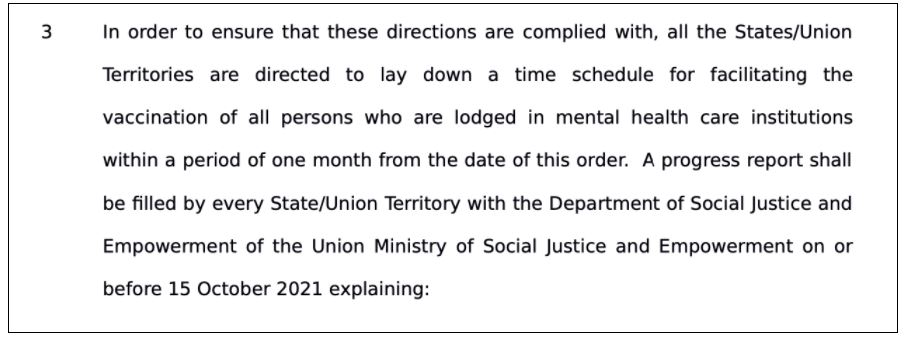
This Supreme Court Bench issued these directions while adjudicating a plea regarding the rehabilitation of mentally ill patients who were in various hospitals & mental asylums.
In an earlier order, the court directed the State of Maharashtra to discontinue the practice of shifting mentally ill patients from medical establishments to beggar homes, which was contrary to the Mental Healthcare Act, 2017.
The Bench has further directed all the States & UTs to set up an online dashboard within 4 weeks, which contains information on the availability of mental healthcare institutions, the facilities, occupancy rates, region-wise distribution of halfway homes, etc, and to ensure that the data is updated on a real-time basis.
The court reviewed the information on the progress submitted by the States of Maharashtra & Uttar Pradesh and noted that steps taken do not qualify as compliant and stated that steps ought to be taken in setting up halfway homes.

It has directed all the States & UTs to expeditiously establish halfway homes within a period of 6 months and directed the Ministry of Social Justice & Empowerment to conduct monthly review meetings with the States & UTs and review the progress.
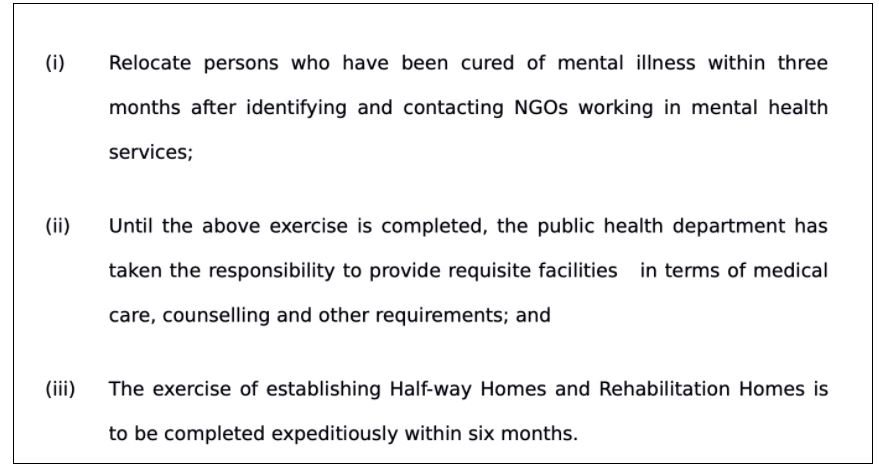
The court reiterated that the efforts of State governments need to be towards rehabilitation and not just relocation of the mentally ill patients. It has directed the Centre to file a status report a week before the next hearing, which is scheduled during the last week of December 2021.
Delhi Court: Discharges Shal Alam & two others in Delhi Riots cases citing lack of proper investigation
A Delhi court discharged the three accused persons in a Delhi Riots case on 02 September 2021. In its order, the court observed that it appears that the effort to the police was limited to filing a charge sheet and there was no real effort in the investigation to trace eye-witness, real accused persons and technical evidence.
It further stated that that the approach by the investigating agency was a wastage of time & money of the taxpayer. The court highlighted that the pain & suffering of the victims is not addressed as the case remains unsolved.
Those discharged include – former AAP Councillor Tahir Hussain’s brother Shah Alam, Rashid Saifi & Shadab as per FIR 93/2020. The FIR was registered under sections 147, 148, 149, 427, 380, 545, 436, 435, and 120-B of IPC, based on complaints alleging that a shop was burnt, attacked, and looted during the Delhi Riots.
The court observed that the accused persons were not specifically named in the FIR and no role was assigned to them. The court further noted that there was no independent eyewitness being recorded with respect to the witness.
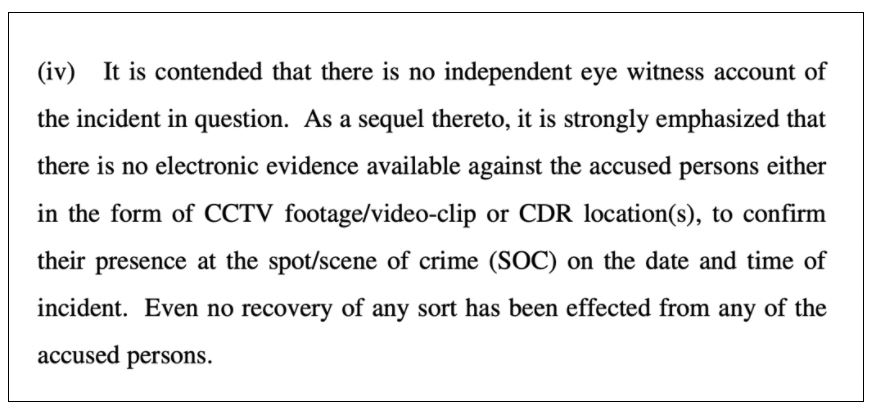
The court noted the lapse on part of the investigation and took cognizance of the accused who have been languishing in prisons in the last 1.5 years because the trial has not been initiated.

Madhya Pradesh HC: Public Parks should not be used for any other purposes
In the case of Preeti Singh Vs. The State of Madhya Pradesh & Ors, the petitioner sought the direction of the court to stop the construction of a community hall in a public park in the residential colony of Burhanpur city of Madhya Pradesh.
After hearing the case, the Madhya Pradesh High court directed the demolition of the specified community hall and upheld the importance of having open spaces to maintain ecological balance. The construction of the community hall was stalled as per the directions of an earlier order by the court. The Court further took cognizance of illegal constructions which have encroached the public space and issued orders to remove them.
The court referred to Supreme Court’s Judgment in Bangalore Medical Trust vs B.S. Mudappa & Ors (1991). In that judgement, emphasis was laid upon the preservation of Public Parks, in opposition to the construction of a nursing home.
The MP High court further referred to Section 279 of the M.P Municipalities Act, 1961, which makes the Municipal council responsible to provide places of recreation, which also includes open spaces, parks, playgrounds, etc.
Section 282 of this act states that, after making the reservation, any construction cannot be allowed except with the permission from State Government. Accordingly, the court observed that once the Public Park is dedicated to the citizens, it is being held by the municipality in trust. Using such public space for any other purpose would be a breach of trust on the part of the municipal body.

In its observations, the High Court stated that the environmental factors need to be the key for all the local bodies as well as the Courts while interpreting any town planning laws. Any action thus taken up by the authorities should not be at the cost of ecological considerations.
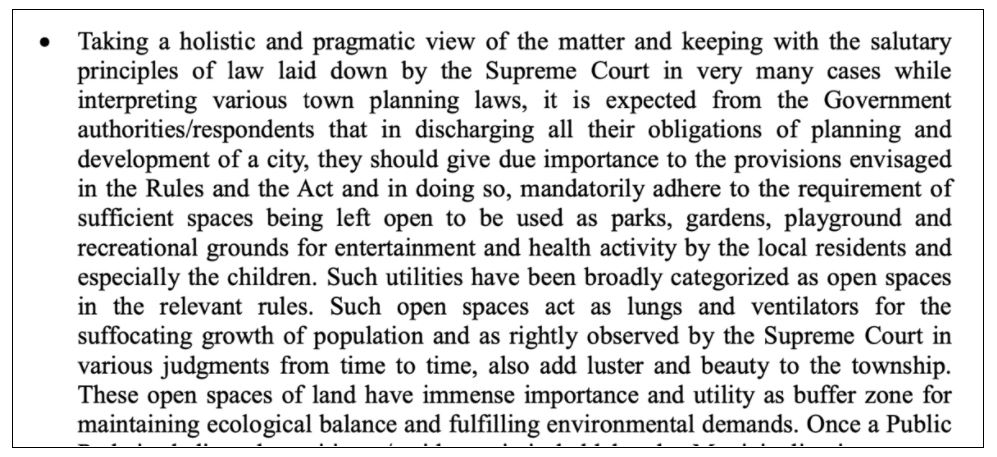
Centre tells the Delhi High court that IT Rules 2021 do not have to affect Free Speech
In an affidavit filed by the Central Government before the Delhi High court, the government stated that IT Rules-2021 do not affect free speech in the country and are only aimed at bringing regulation over the online news & social media platforms.
The Central government claimed that deterring fake news and bringing in self-regulation along with a ‘co-regulatory’ mechanism is the main intent behind these Rules. The affidavit comes in wake of multiple appeals filed by various digital houses – The Wire, The Quint, Alt News along with news agency PTI.
In its affidavit, the Centre has highlighted the various reasons for it to construe that the pleas are fallacious and liable to be dismissed. The government made the following submissions in its affidavit.
- The grievance redressal mechanism does not have a chilling effect on Free Speech.
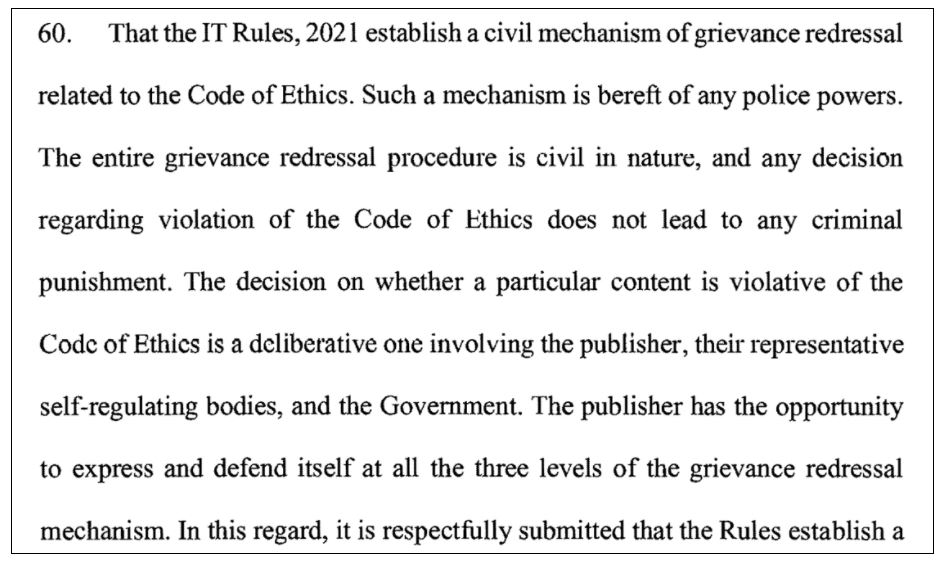
- 3- tier regulatory mechanism which includes self-regulation & Oversight mechanism. The over-sight mechanism has a dual safeguard of the Inter-departmental committee and Senior officials, to prevent any arbitrary decision making.
- The Centre claims that the regulation of digital media under IT rules comes within the scope of the IT Act. The intention of the rules is to ensure accountability towards the audience.
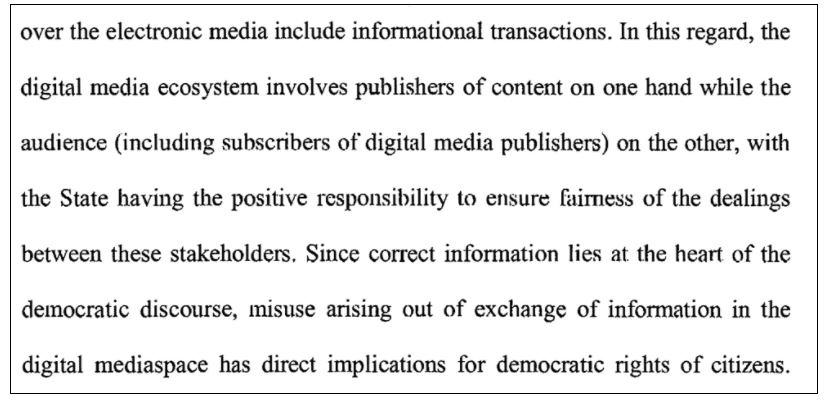
- IT Rules are an extension of Journalistic Norms/Code of Ethics applicable to the traditional media, to be applied to Digital Media. The Rules would bring in regulation and address issues like the spread of Fake news.
It remains to be seen if the Delhi High Court agrees with these assertions or rules otherwise.


